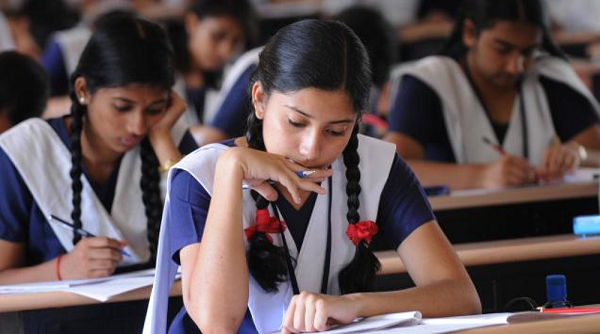Need to define educational outcomes
Total Views |
-Mukul Kanitkar
Real character of an individual or the society is revealed at the time of calamity. It is testing times, when you show your real self. What is happening today in the society at the time of complete Lockdown, when the leader of the nation appealing for the complete restraint for the good of one's own self, even at such a juncture lot of people are breaking the rules of Lockdown. Trying to go out just for the sake of it, without any reasonable ground, trying to roam. Why this is happening? Who are these people, who are breaking these simple dos? restrains of the Lockdown? They are not illiterate, not the persons who do not know the law, who do not understand the instructions, clearly broadcasted by the government in many ways. Most of these people who are arguing with police and other government personnel are educated lot, highly educated. But their education has not equipped them to deal with a grave situation demanding control of their basic instincts.

Here comes the question, What is the role of education in shaping Human character?
During all this talk of existential crisis of humanity, at the National level, we are already almost 5 years late in preparing the National Curriculum Framework (NCF). Last one was framed in 2005. After 10 years, in 2015 a new NCF was due. But due to the unprecedented process of consultations for the National Education Policy NCF work was further delayed. Just a week before the Corona outbreak NCERT director declared, constitution of a steering committee for the purpose of drafting the National Curriculum Framework.
Why is a Curriculum Framework important? We all are concerned about the change in syllabus. But more important is the curriculum. Syllabus is only a part of the curriculum. Curriculum includes two other more important factors of education. Apart from content two important factors— Pedagogy and Examination & Evaluation. Examination & Evaluation are not same, but compliment the process of learning. Evaluation is at the individual level. Only self can evaluate. I can evaluate myself, no one else can. Self includes Guru or guide and parents. So father, mother & teacher, these three can evaluate me as they are in direct contact, involved in my educational process. They can evaluate. Examination is always by the third party. One who does not know the the process of education has to examine the product. Evaluation is the process of introspection, to enable appropriate change, modifications & redesigning of the process. After this proper educational process is over or at a stage there is examination. Evaluation & examination design is part of the curriculum. Second most important part of curriculum is methodology, pedagogy of learning. These three together form curriculum—Content, Padagogy & Evaluation-Examination. Hence National Curriculum Framework is very important in context of framing all these three. Examination and syllabus depend on what kind of outcomes do we expect of educational process. Padagogy or methodology of learning will also be in accordance with expected outcomes.
Nowadays the phrase 'learning outcome' is often used. It refers to outcomes of each subject at every stage. But in Bharat right from 'Taitariya Upanishad' more deeper outcome is expected. Translated in English, it may be called 'Educational outcome' and not just learning outcome. It is not just dependent on learning of syllabus, assimilating some knowledge, a few concepts & lot of information about those concepts. That is limited to learning outcomes. But in the comprehensive Bhartiya concept of educationmore important is the educational outcome— in Samskrit अधिगम फलित: (Adhigam Falitah), फलित: (Falitah)—outcome अधिगम (Adhigama)—educational process. Process of अध्ययन (Adhyayan) learning is Adhigam. Weather at the school or at college or higher university level or even at the research level, What should be the outcome of whole educational process, the result of whole curricular activities?
Hence, curriculum framework of the Nation has to be built on the foundations of Educational Outcomes intended. If values of punctuality, discipline, Patriotism and cleanliness are to be made part of education, we will have to design the curriculum & methodology accordingly. We cannot have hi-fi air conditioned ready-made classrooms. Where student do not have to put any efforts, not cleaning desk, nor classroom as it is already clean, ready, spunky & air conditioned. In such an atmospher one cannot expect value of cleanliness to be inculcated. The curriculum process will depend on what educational outcome we expect out of our schools.
In present article it would suffice to say, that educational outcome cannot be just individual oriented. We need a hollistic personality development of the individual. That is the one of educational outcomes. In the words of Yogi Arvindo— fivefold personality development— Physical, mental, emotional, intellectual & spiritual. This is educational outcome at the individual level. Second aspect of the educational outcome is Social Behaviour. Constitutional values of Citizenship, sense of responsibility and contribution is expected outcome at the social level. Number three, at the National level is priority to Nation. The students as a result of education is expected to be a citizen who gives priority to national needs than individual. The fourth stage is at the universal level. This includes environmental, international & Global awareness, also awareness of spirituality, awareness of respecting different faiths.
Individual, social, national & universal, at all these four levels, educational outcomes need to be defined. After this eternal educational outcome is defined, then the curriculum framework can be designed to gradually inculcate appropriate value and achive intended educational outcome out of the educational process. At this juncture, when we are actually facing the result of present education blatantly and at the same time we are in the process of designing the new National Curriculum Framework, we should define our Educational Outcome deligently. This is the right time to do so.

